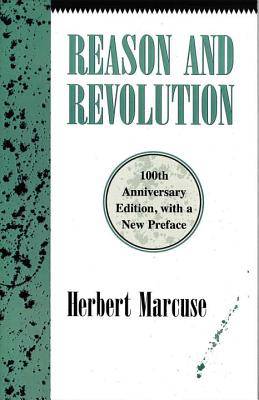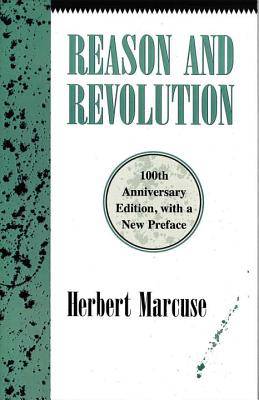
Bedankt voor het vertrouwen het afgelopen jaar! Om jou te bedanken bieden we GRATIS verzending (in België) aan op alles gedurende de hele maand januari.
- Afhalen na 1 uur in een winkel met voorraad
- In januari gratis thuislevering in België
- Ruim aanbod met 7 miljoen producten
Bedankt voor het vertrouwen het afgelopen jaar! Om jou te bedanken bieden we GRATIS verzending (in België) aan op alles gedurende de hele maand januari.
- Afhalen na 1 uur in een winkel met voorraad
- In januari gratis thuislevering in België
- Ruim aanbod met 7 miljoen producten
Zoeken
€ 51,95
+ 103 punten
Uitvoering
Omschrijving
It is of the very definition of any "classic" work that it will not only introduce a new depth and direction of thought, but that its original insights endure. When it first appeared in 1940, Reason and Revolution by Herbert Marcuse (1898-1979) was acclaimed for its profound and undistorted reading of Hegel's social and political theory. Today, the appreciation of Marcuse's work has remained high, more relevant now than ever before.In the rapidly changing context of post-Cold War political realities, there is no better guide than Marcuse to where we have been and to what we might expect. As he well understood, turbulent and spectacular political events always ran within channels earlier set by political theory; and he equally understood that it was Hegel's often unappreciated and misunderstood theory which actually set a fundamental path of modern political life.It is a fortunate combination to have a scholar of Marcuse's brilliance and lucid honesty addressing the sources and consequences of Hegel's social theory.
Specificaties
Betrokkenen
- Auteur(s):
- Uitgeverij:
Inhoud
- Aantal bladzijden:
- 440
- Taal:
- Engels
Eigenschappen
- Productcode (EAN):
- 9781573927185
- Verschijningsdatum:
- 1/03/1999
- Uitvoering:
- Paperback
- Formaat:
- Trade paperback (VS)
- Afmetingen:
- 135 mm x 214 mm
- Gewicht:
- 517 g

Alleen bij Standaard Boekhandel
+ 103 punten op je klantenkaart van Standaard Boekhandel
Beoordelingen
We publiceren alleen reviews die voldoen aan de voorwaarden voor reviews. Bekijk onze voorwaarden voor reviews.









